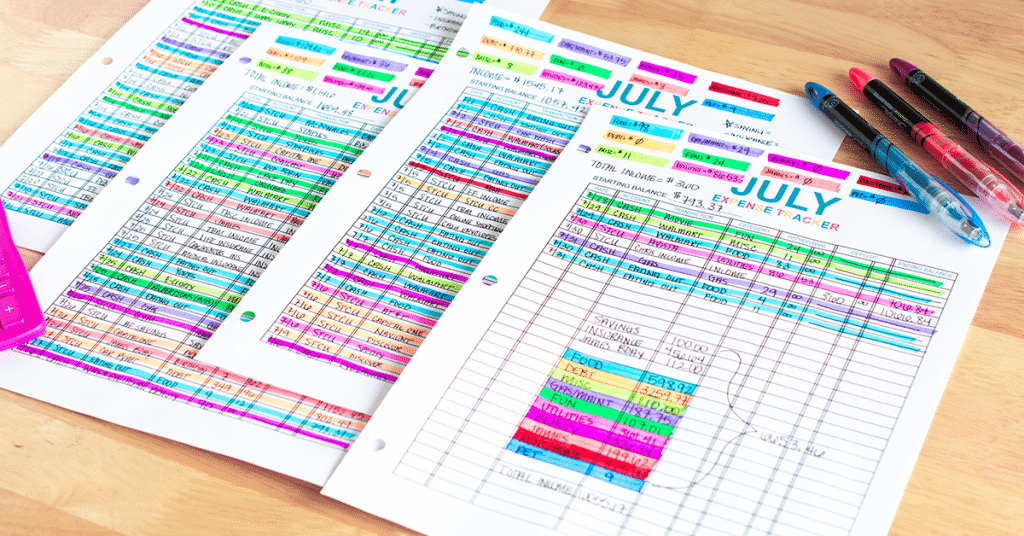Hey there, money maestro in the making! Ever feel like your hard-earned cash is playing hide and seek with you? Don’t worry, you’re not alone in this financial jungle. Welcome to your ultimate guide on expense tracking – the superhero skill that’ll transform you from a money novice to a financial wizard!
Keywords**: Budgeting, personal finance, money management, financial planning, saving money, spending habits, cash flow, financial goals, income tracking, financial awareness, cost control, financial freedom, debt reduction, financial literacy, money habits, financial health, budget categories, discretionary spending, fixed expenses, variable costs, financial software, money apps, financial responsibility, frugal living, economic mindfulness
Why Track Your Expenses? The Million-Dollar Question!
Imagine you’re captaining a ship (let’s call it the S.S. Moneybags) in the vast ocean of personal finance. Would you set sail without a compass, map, or even a vague idea of where you’re headed? Of course not! That’s exactly what managing your money without tracking expenses is like.
Fun Fact: Did you know that in ancient Mesopotamia, people used clay tokens to track trades and debts? Talk about old-school expense tracking!

When you track your spending, you’re essentially giving yourself a financial GPS. It’s like having a magic mirror that shows you exactly where your money’s sneaking off to. And trust me, sometimes it’s hiding in places you’d never expect!
The Budget: Your Financial North Star
Before we dive into the nitty-gritty of expense tracking, let’s talk about its partner in crime: the budget. Think of your budget as the North Star guiding your financial ship. It’s not about putting your money in a straightjacket; it’s about giving it a purpose and direction.
Here’s how to set up your budgeting compass:
- Map Your Income: List all the treasure (aka money) flowing into your coffers each month. Whether it’s your regular job, that side hustle selling handmade potholders, or the coins you find in your couch – count it all!
- Plan Your Route: Outline your expenses, prioritizing the essentials. Remember, Netflix might feel essential, but your landlord might disagree when the rent’s due.
- Balance the Books: Aim for your income minus expenses to equal zero. This doesn’t mean spending everything; it means giving every dollar a job, even if that job is “sit in my savings account and look pretty.”
Fun Fact: The word “budget” comes from the old French word “bougette,” meaning a little bag. Imagine stuffing all your expenses into a tiny purse – that’s budgeting in a nutshell!
Expense Tracking: Your Financial Superpower
Now that we’ve got our budget set up, let’s unlock your new financial superpower: expense tracking. Here’s your four-step guide to becoming the superhero of your own finances:
- Create Your Budget: We’ve covered this. It’s your financial game plan!
- Log Your Income: Every penny that comes in gets recorded. Yes, even that $5 your aunt sent you for your half-birthday.
- Track Every Expense: From your morning latte to your monthly streaming subscriptions, log it all. No expense is too small to track. Remember, small leaks can sink big ships!
- Make It a Habit: Find a rhythm that works for you. Some people love the daily check-in, others prefer a weekly money date. The key is consistency.
Fun Fact: In Japan, there’s a budgeting method called Kakeibo, which involves keeping a physical journal of your spending. It’s been helping people master their finances since 1904!
Choosing Your Expense Tracking Sidekick
Every superhero needs a sidekick, and in the world of expense tracking, your sidekick is your tracking method. Let’s meet the contenders:
- Paper and Pen: The classic choice. It’s simple, it’s tactile, and it never runs out of battery. Perfect for those who love the feel of pen on paper and have handwriting that doesn’t look like a doctor’s prescription.
- Envelope System: This method involves using actual cash in envelopes for different expense categories. It’s great for visual learners and those who need a physical reminder to stop spending. Plus, it’s a great excuse to use those cute envelopes you’ve been hoarding.
- Spreadsheets: For the data nerds and Excel wizards among us. You can create beautiful charts and graphs that make your spending look like a work of art. Here is your copy.
- Budgeting Apps: The modern, tech-savvy choice. These apps can often link to your bank accounts, categorize your spending automatically, and send you notifications when you’re about to blow your budget on another pair of shoes you definitely don’t need.
2024 Budgeting Apps
Remember, the best method is the one you’ll actually use. It’s like choosing a workout routine – the fanciest gym membership in the world won’t help if you never go!
Why This Matters: The Big Picture
Tracking expenses isn’t just about becoming a human calculator. It’s about taking control of your financial story. It’s the difference between wondering, “Where did all my money go?” and confidently saying, “My money went exactly where I told it to go!”
When you track your expenses:
- You make informed decisions (like realizing you spend more on dog toys than human food)
- You spot unnecessary spending (did you really need that banana slicer?)
- You accelerate towards your financial goals (hello, dream vacation!)

Fun Fact: A study by the National Foundation for Credit Counseling found that people who track expenses are 62% more likely to report no financial worries compared to those who don’t track expenses. Talk about peace of mind!
Your Next Steps: Becoming a Money Master
Ready to take control of your financial destiny? Here’s your action plan:
- Choose your tracking method (Eeny, meeny, miny, moe…)
- Set up your budget (Remember, it’s a friend, not a foe!)
- Start logging expenses today (Yes, today. Not tomorrow. Today!)
- Review and adjust regularly (Your budget should be as flexible as a yoga instructor)
Remember, financial freedom isn’t about being perfect – it’s about making progress. Every expense you track is a step towards a brighter financial future. It’s like building a money muscle; the more you do it, the stronger you get!
Wrapping It Up: Your Financial Adventure Awaits!
Congratulations! You’ve just taken the first step on an exciting journey towards financial mastery. By embracing expense tracking, you’re not just managing your money – you’re creating possibilities, reducing stress, and building a future where your money works for you, not against you.
So, are you ready to become the hero of your financial story? Your future self is already thanking you for starting today. Remember, every great adventure starts with a single step – or in this case, a single tracked expense.
Now go forth and conquer, oh mighty money tracker! Your financial empire awaits!
Final Fun Fact: The average American household spends $1,497 per year on entertainment. By tracking your expenses, you might find enough spare change in your budget to buy 374 tubs of popcorn at the movies. Now that’s entertainment!
